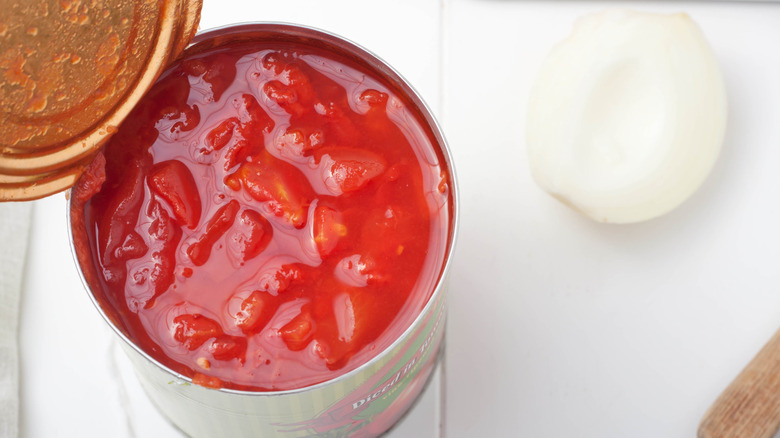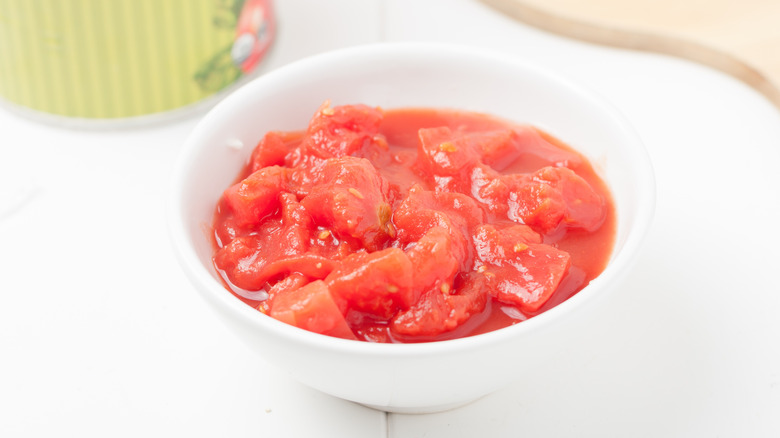What You Should Consider Before Buying Canned Diced Tomatoes
When it comes to produce that can be just as good canned as it is fresh, it's hard to think of a finer example than tomatoes. These sweet, juicy fruits take remarkably well to canning, according to Bon Appétit. The outlet explains that since canned tomatoes are made using perfectly ripe fruits that are picked at the height of tomato season, the canned product will be uniformly packed with flavor, whereas fresh supermarket tomatoes and even farmers market specimens can be a bit of a gamble. Bon Appétit even goes so far as to say that canned tomatoes are a better choice than fresh when it comes to making pasta and pizza sauces, braises, and stews, while the fresh version of the fruit shines in salads and other raw applications.
Bon Appétit isn't alone in its love for canned tomatoes — professional chefs, too, often sing their praises, from "Top Chef" alum Fabio Viviani and "Worst Cooks in America" host Anne Burrell to "Chopped" judge Maneet Chauhan. But even if you're repping your preferred canned tomato brand, it's just as important to pay attention to which type of tomato you're buying — whole, crushed, stewed, or diced, for example — because some may contain an ingredient you might want to avoid.
Canned diced tomatoes contain calcium chloride
If you make a lot of soups, sauces, and stews, it's likely you're familiar with using canned tomatoes. Most often, recipes calling for canned tomatoes specify whole tomatoes, which are peeled and contain their canning liquid. According to Simply Recipes, whole peeled tomatoes are the most versatile choice for cooking, since you can leave them whole for texture, chop them in a large or small dice, or even purée them for a smoother result.
But many recipes also specify canned diced tomatoes, such as those for tortellini soup or chili. Diced tomatoes are convenient, of course, because all you have to do is open the can and dump them out. However, as explained by Home Cook World, canned diced tomatoes include calcium chloride, a compound that helps preserve the square shape of the tomatoes so they don't break down over time.
While this might help the look of the tomatoes, Home Cook World writes, it also makes the tomatoes extra resistant to breaking down, even once they're cooked. As a result, canned diced tomatoes will never fully incorporate into a sauce or stew, creating a very distinctive texture that some people just don't like. As suggested by other outlets, The Kitchn recommends always buying canned whole tomatoes, as these can then be sliced, chopped, or puréed into whatever texture your recipe calls for — and they'll actually cook down into the dish instead of standing out.

